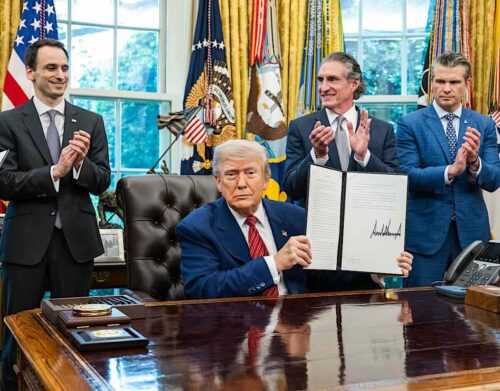
This question is especially salient with respect to climate change, as Mr. Obama has indicated that he intends, at the next United Nations climate-change summit to be held this November in Paris, to bypass Congress once again and settle on a “politically binding” climate agreement that he would implement through executive action. This is very different from the 1997 Kyoto Protocol, which was regarded as a formal treaty that would have required Senate ratification to take effect. President Clinton never submitted Kyoto to the Senate for a vote: His own council of economic advisers told him it was an economic nonstarter.
This episode is relevant today. Before Vice President Al Gore embarked for Kyoto, the Senate voted 95-0 for a resolution warning the Clinton administration not to sign an asymmetrical deal that would disproportionately harm the U.S. economy. But that is exactly what Mr. Gore bought back from negotiations. Note that those voting for the resolution included climate-change true believers such as Barbara Boxer and John Kerry.
The basic international economics of greenhouse-gas reduction hasn’t changed in 20 years, and any new U.N. agreement is sure to be Kyoto revisited. Today’s Senate Democrats are so far gone into climate-change hysteria that they would never vote for the kind of resolution that passed in 1997. But GOP legislators might have other options to constrain Mr. Obama’s diplomacy.
First, the House and Senate could pass the climate equivalent of trade-promotion authority, telling Mr. Obama to go forth and negotiate an agreement subject to specific conditions. A climate version should include language saying that any agreement must not be economically asymmetrical, but above all stating that Congress will hold an up-or-down vote on whatever the president brings back from Paris.
Second, the House and Senate could pass a bill blocking federal agencies from regulating greenhouse-gas emissions until two conditions are met: 1) Congress ratifies a new post-2020 climate agreement; and 2) the nations entering the agreement represent at least 80% of global greenhouse emissions. (The Kyoto Protocol covered barely more than half of the world’s total emissions.)
If crafted properly, such a bill would leave in place regulations that do not target greenhouse emissions directly. For example, it wouldn’t affect the new Corporate Average Fuel Economy standards for automobile efficiency, but it would suspend the EPA’s Low Carbon Fuel Standard, a backdoor mandate for ethanol that is designed to suppress conventional petroleum products such as gasoline and diesel.
Both of these measures would restore some balance to climate-change policy. Mr. Obama would surely veto the bills, but this would draw out the administration in ways that would be embarrassing. President Obama, Secretary of State John Kerry and EPA Administrator Gina McCarthy have all said that the U.S. can’t act alone on climate change. These measures would call their bluff.
But more than that, they would expose the breathtaking insincerity and situational ethics of Mr. Obama’s executive usurpations. The president has said that climate change is a more serious global threat than Islamic State—on which Mr. Obama has consulted Congress by asking for a new use-of-force resolution. Why not similarly seek the involvement of Congress in global warming, which he considers the more important challenge?


















